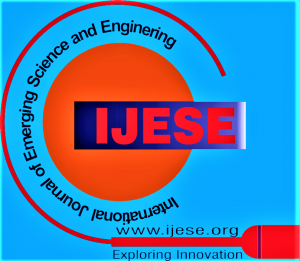![]()
Evaluating the Role of STEM Education in Empowering Secondary School Students
Chitra S.
Dr. Chitra S., Assistant Professor, Sree Narayana Training College, Nedunganda.
Manuscript received on 07 July 2024 | Revised Manuscript received on 13 July 2024 | Manuscript Accepted on 15 July 2024 | Manuscript published on 30 July 2024 | PP: 7-12 | Volume-12 Issue-8, July 2024 | Retrieval Number: 100.1/ijese.I258112090824 | DOI: 10.35940/ijese.I2581.12080724
Open Access | Editorial and Publishing Policies | Cite | Zenodo | OJS | Indexing and Abstracting
© The Authors. Blue Eyes Intelligence Engineering and Sciences Publication (BEIESP). This is an open access article under the CC-BY-NC-ND license (http://creativecommons.org/licenses/by-nc-nd/4.0/)
Abstract: In recent years, the global emphasis on STEM (Science, Technology Engineering, and Mathematics) education in secondary schools has grown significantly, driven by the recognition of its pivotal role in preparing students for the complexities of the 21st-century workforce. STEM education transcends traditional disciplinary boundaries, emphasizing critical thinking, problem-solving, and innovation—the cornerstones of technological advancement and economic competitiveness. The present study delves into the relevance of STEM education in secondary schools, exploring its impact on students’ academic development, career readiness, and the broader societal implications. By examining current research, trends, challenges, and future prospects, this investigation aims to provide a comprehensive understanding of how STEM education equips students with essential skills and knowledge to navigate and contribute meaningfully to our increasingly STEM-oriented world. This study was conducted using the survey method with 50 secondary school teachers as the study samples. The data were collected using opinionnnaire and analyzed using quantitative descriptive analysis. The study results revealed that STEM education implemented at secondary school level helped in the development of the higher cognitive abilities of the learners, such as problem solving, critical thinking, creative thinking etc.
Keywords: STEM Education, Secondary School Level.
Scope of the Article: Human-Computer Interaction (HCI)
